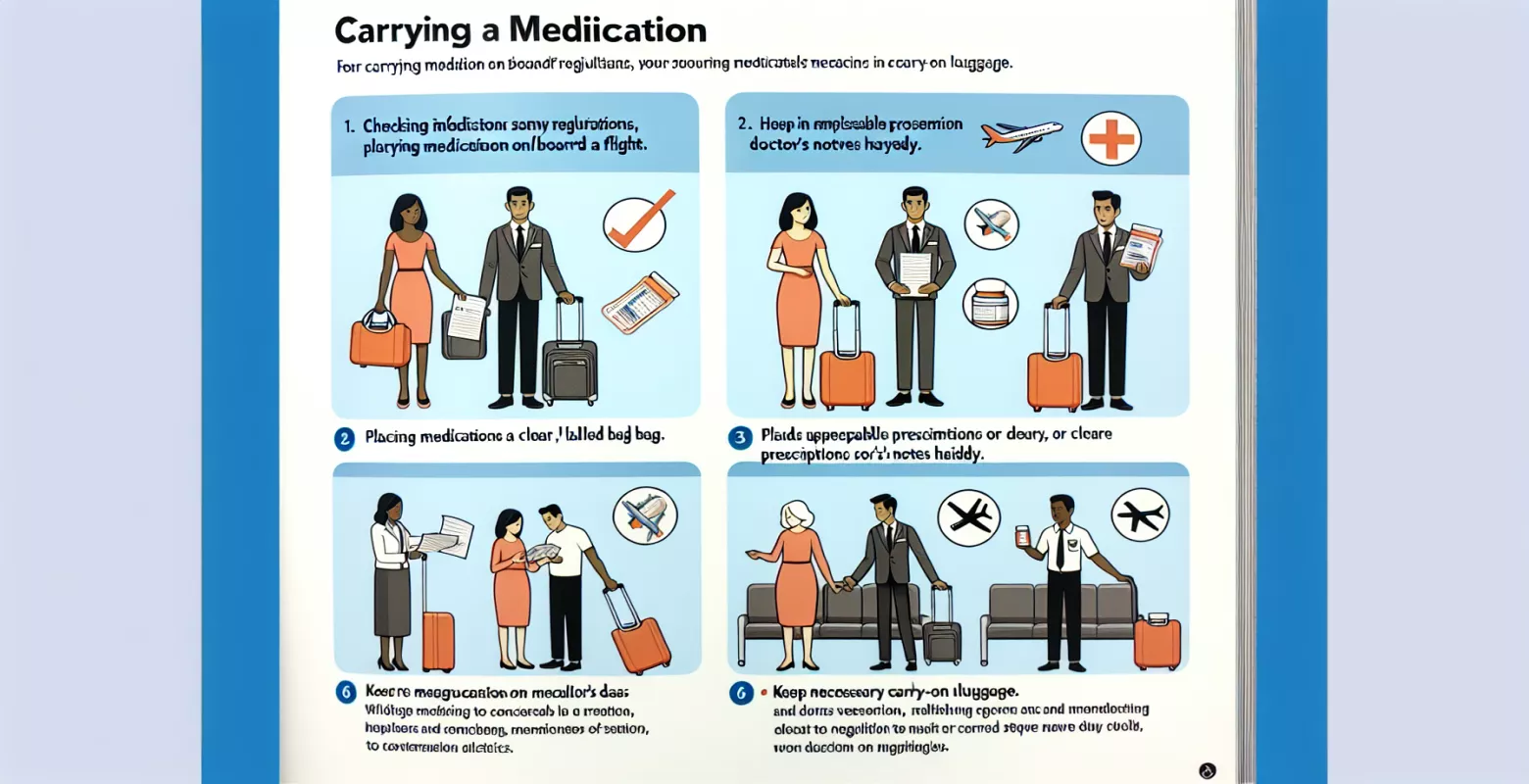What You Need to Know About Carrying Medicines on Board
Introduction
Traveling with medications is a topic that affects many people around the world. Whether you're traveling for business or leisure, it's important to understand the rules for carrying medications on board an aircraft. From preparing the necessary documentation to understanding the rules regarding the types and quantities of medications, there are many aspects to consider. In this article, we will discuss what you need to know about carrying medications on board to avoid unpleasant situations and ensure a smooth journey.
Rules for Carrying Medicines on Board
The transport of medicines on board an aircraft is regulated by international and local laws. It is important to familiarize yourself with the guidelines of airlines and customs regulations of the destination country. Generally, passengers can carry medicines on board, but they must be stored in their original packaging with a visible label indicating the name of the medication and the patient's details.
Medical Documentation
When traveling with medications, it is recommended to have appropriate medical documentation. This may include a certificate from a doctor describing the type of medication, its dosage, and the purpose of its use. It is important that the documentation is prepared in English or the official language of the destination country to avoid misunderstandings during customs control.
Liquid Medications
One of the most common issues related to carrying medications on board is liquid medications. For these medications, specific regulations apply regarding their quantity and method of transportation. In most cases, liquid medications must be carried in containers not exceeding 100 ml and placed in a transparent bag with a capacity of up to 1 liter. However, if you have a medical certificate, you may be exempt from this restriction.
Medical Equipment
In addition to medications, medical equipment such as syringes, inhalers, or glucose meters can also be carried on board. It is important to inform the airline staff before boarding and have appropriate documentation confirming the necessity of their use.
Regulations of Different Countries
Each country may have its own regulations regarding the transport of medicines. Before traveling, it is worth checking the local regulations to avoid problems at the border. In some countries, certain medications may be considered illegal, so it is essential to be well-informed and prepared.
Challenges and Benefits
Carrying medications on board can be challenging for people traveling with a large amount of medications or medical equipment. However, proper preparation, having documentation, and knowing the regulations can greatly facilitate this process. Using medications during travel is essential for the health and comfort of many passengers, so it is worth taking the time to prepare properly for the journey.
Conclusion
Carrying medications on board an aircraft is an important aspect of travel for those who regularly take medications. Knowledge of the regulations and proper preparation can help avoid many problems and ensure a peaceful journey. Remember to have the appropriate documentation and follow the transport rules to make your journey comfortable and hassle-free.






Number of comments: 0